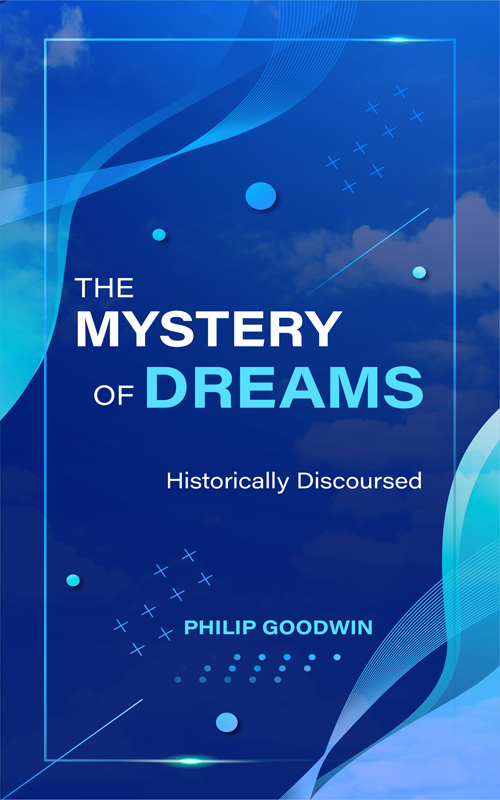 by Philip Goodwin
by Philip Goodwin
in ePub, .mobi & .pdf formats
This text has been initially updated from EEBO-TCP by Project Puritas (Logan West, David Jonescue, Alex Sarrouf) www.puritansearch.org. Further revision and editing done by Monergism. Copyright Monergism via universal text usage permission from the above.
"The Mystery of Dreams" by Philip Goodwin is a theologically rich treatise that considers the complex and often mysterious world of dreams from a Christian perspective. This work historically discourses the nature of dreams, seeking to unveil the meanings and implications of differing dreams and their impact on the human soul. Goodwin explores various aspects of dreams, including their characters, causes, consequences, and the profound truths they can reveal about the inner workings of human thoughts during sleep.
Drawing upon the wisdom of theologians and philosophers like Iamblichus, Augustine, and Zanchius, Goodwin emphasizes the nature of dreams, viewing them in ways that can only be understood through the guidance of God's Spirit speaking in the Word.
Goodwin's exploration includes a theological reflection on the condition and comparison of the people of God, likening their experiences to dreamlike states where divine intervention and deliverance are evident. This analogy underscores the miraculous and mysterious nature of God's mercy and action in the lives of His people. Furthermore, he explores the rational and spiritual dimensions of dreaming, suggesting that dreams can be a space where reason and spiritual insight intersect, providing meaningful and methodical understanding even during sleep.
A significant aspect of Goodwin's work is his emphasis on the soul's activity in dreams. He describes dreams as the movements of the soul, expressing thoughts while the body is at rest. This view aligns with the Reformed emphasis on the soul's primacy and its continuous engagement with spiritual realities, even in sleep. Goodwin also highlights the importance of righteousness in the handling of dreams, asserting that indulgence in vain or sinful dreams debases the soul, while heavenly dreams elevate it.
In discussing dreams, Goodwin does not shy away from acknowledging the role of Satan and the necessity of discernment. He cautions against the deceptive nature of dreams influenced by Satan and emphasizes the need for scriptural light to discern the truth from falsehood. This approach reflects the Reformed commitment to the authority of Scripture as the ultimate guide in all matters of faith and practice.
Overall, "The Mystery of Dreams" offers a comprehensive theological examination of dreams, their significance, and their implications.. Goodwin's work is a valuable resource for understanding the spiritual dimensions of dreaming and aligns with the broader theological framework of Reformed theology, emphasizing God's sovereignty, the authority of Scripture, and the active engagement of the soul with spiritual realities.
-----
Philip Goodwin (c1605-1667)
Philip Goodwin was a Puritan clergyman. He matriculated at St John's College, Cambridge in 1623 and graduated four years earlier. He was appointed a curate in Hertford in 1633 and then as one in Watford in 1637 before becoming the vicar of Watford in 1643.
Throughout his career he was said to care for his parishioners, but his claim to fame is that he wrote a book on dreams called The mystery of dreams historically discoursed which was published in 1658. In it he suggested that people should 'pray for good sleep and good dreams' and saw dreams as a 'safe and instructive experience for the pastoral care of the soul' as they could contain messages from God. (Note 1)
In addition to being a vicar he was also recommended to two lectureships by Parliament, one of which he took (Pinner) and one he declined (Hemel Hempstead), in the last great age of lectureships. His parish had over 1000 people living there but, during the Civil War, this doubled as soldiers were stationed there. It had and maintained a strong tradition of Puritanism.
He clearly led a comfortable life as in his will of 1667 he leaves £400 and four houses to his children (John, James, Philip, Joseph, married daughter Sarah Walker) and his wife.
-----
Table of Contents
I. OF MENS DREAMS MORE GENERALL.
II. OF FALSE AND DELUDING DREAMS.
III. OF FILTHY AND DEFILING DREAMS.
IV. OF IDLE AND VAIN DREAMS.
V. OF TROUBLESOME AND AFFRIGHTING DREAMS.
VI. OF PROFITABLE AND INSTRUCTING DREAMS.
